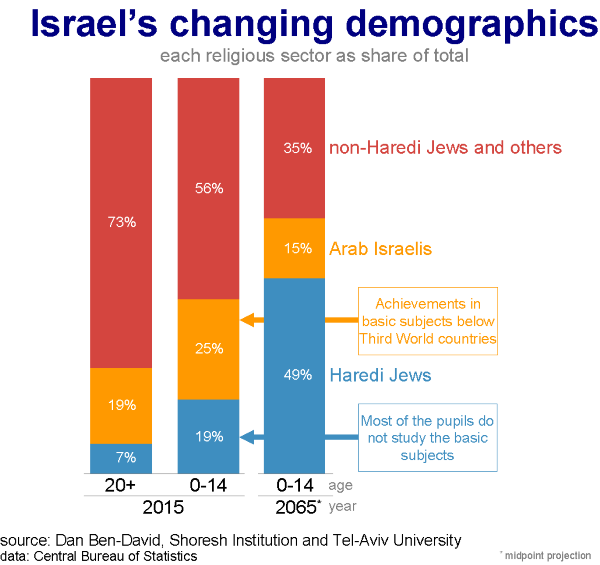Batya Ungar-Sargon, Opinion Editor of the Forward, is shocked, hurt, and very angry after coming face to face with antisemitism at Bard College.
Invited to participate in several panels, she was informed that one of them – on “Racism and Zionism: Black-Jewish relations” – would be disrupted by the local chapter of Students for Justice in Palestine (SJP). For those who might say “so what?” this means that there would be no such panel. Thanks to a combination of cowardice, laziness, and ideological stupidity, administrators in numerous universities have granted radical groups like SJP the right to veto of any activity that they don’t like. It is a “heckler’s veto” that needs no rationale and permits no appeal. Security personnel may prevent physical injury, but they won’t remove the disruptive students.
Ungar-Sargon tried to reason with them. In a cringe-inducing example of liberal not-getting-it, she begged:
As the protesters started to gather in the lobby, I approached them. I told them that I respected their passion and commitment to what they thought was right, but asked why they had picked this panel.
“Come to my panel tomorrow,” I said. “Come protest my comments on Zionism. I’ll be talking about the occupation. Bring your signs.”
I told them I’d reserve the first and second audience-questions for members of their group, but that protesting the all-Jewish anti-Semitism panel was undercutting their work.
“Don’t you see that?” I asked. Didn’t they see that protesting Jews over Israel when they are not even talking about Israel is racist? Didn’t they understand that saying we were responsible for the behavior of the Israeli Jews just because we shared their ethnicity was racist? That making every conversation with Jews about Israel is racist?”
The students weren’t buying it. “The conversation about anti-Semitism is already inherently about Israel,” one said, whatever that is supposed to mean in their world. And some of the other speakers and faculty members came to their defense.
When I read this, scene 14 from Schindler’s List (video) came to mind. That’s the one in which a young Jewish woman engineer attempts to reason with the Nazi Amon Göth, and gets a bullet for her trouble. It’s not what she says or her competence that is important. There is only one relevant fact, and that is her Jewishness. And so it was for Ungar-Sargon, and she is rightly angered.
Ungar-Sargon does not understand that the student was correct. The conversation about antisemitism is about Israel. Had the state of Israel been in existence in 1940, perhaps the young woman engineer would not have been a slave of Amon Göth in the Kraków-Płaszów labor camp. If there were no Jewish state today, perhaps Ungar-Sargon would have gotten a bullet instead of an antisemitic insult. Who knows?
Ungar-Sargon’s opinion section in the Forward reflects her respect for the “passion and commitment” of those that want to see the Jewish state disappear in a puff of blood, like Peter Beinart who called for a Palestinian intifada on her pages.
Her commitment to the Jewish community, at least in America, is strong. She stood up to Ilhan Omar and other leftist antisemites, and didn’t just pick the low-hanging fruit of white nationalism. But she’s a diasporist, not a Zionist. In her opinion, Israel is “an increasingly illiberal ethnostate with a serious civil and human rights problem.” So when she gave the other academics at Bard a well-deserved piece of her mind, she made a point of disassociating herself from Israel:
The next time someone says, ‘What have you done to help Jews as anti-Semitism has spiked across the nation, as Jews have been murdered at their place of worship and Orthodox Jews get beaten to a pulp day after day in Brooklyn,’ you can say, ‘I sat idly by as Jews were protested for trying to talk about anti-Semitism. I allowed a Jewish woman to be held accountable — because of her ethnicity — for the actions of a country halfway around the world where she can’t even vote. I egged the protest on, in fact. And then I went to a party. [my emphasis]
American Jews helped Israel greatly in her early years, with financial contributions and political support. Now the financial contributions are not needed, and the political support is ebbing. Some of the distance between the two Jewish communities is caused by the very real differences in their experience. It is hard for an Israeli to appreciate the “passion and commitment” of SJP for the folks who are stabbing their friends and family members in the streets, or to agree with Peter Beinart’s call for another Intifada, when the last one cost more than a thousand Jewish lives (and no, it will not be “nonviolent” even by the Palestinian understanding of that term, which permits the use of knives and automobiles as weapons).
But there is also the feeling by Americans that they are the senior partner in the Jewish enterprise, and that Israelis ought to be more grateful and take their advice more. They are hurt and resentful. That is unrealistic in today’s world, when the center of Jewish life has moved to Israel.
What I want to say to Batya Ungar-Sargon is that the diasporism she endorses is dying. It is being crushed by academic fascism in the universities and colleges like Bard, it is being nibbled away at by politicians like Ilhan Omar, shot down by homicidal white nationalists, and beaten to death by black and Hispanic thugs in Brooklyn. In a different way, the Reform Movement is also weakening the community by replacing traditional Judaism with a kind of liberal Unitarianism such that Jews will soon be indistinguishable from most other Americans. I suspect that some see this as a good thing, which is a symptom of the problem. The rest of the world is in even worse shape, from a Jewish point of view.
The central insight of Zionism is more and more being proven correct: much of the world is not a friendly place for Jews, and a flourishing and powerful Jewish state is the key to our survival as a people. Batya Ungar-Sargon learned the first part of this painful lesson at Bard College. The second part still eludes her.



